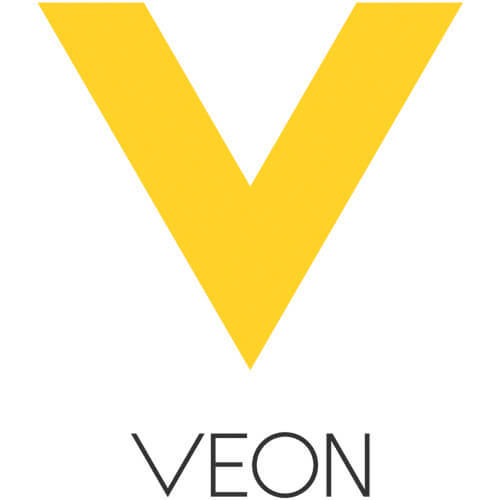Group reports revenue and EBITDA growth on a reported basis in the April-June period of 2021.

VEON, the emerging-markets operator that counts Russia as its biggest market, saw a further improvement in its financial performance in the second quarter (Q2) of 2021 with a return to both revenue and core earnings growth on a reported basis.
While the group achieved revenue growth when calculated in local currencies in the first quarter of the year, reported revenue was 5.1% lower for the January-March period.
However, in the second quarter to the end of June 2021, reported revenue was also higher, rising 9.2% year-on-year to just over US$2 billion. In local currency terms, revenue increased 11.3% year on year.
Figure 1:  Hanging on: One of VEON's biggest markets is Russia – but the operator has bowed out of a number of countries.
Hanging on: One of VEON's biggest markets is Russia – but the operator has bowed out of a number of countries.
(Source: Unsplash)
VEON noted that revenue growth had accelerated in Pakistan, Ukraine, Kazakhstan and Bangladesh, and that local currency performance had improved for the group. EBITDA increased 8.7% on a reported basis to $879 million. Net income fell by 27.1% to $127 million.
The service provider was once again confident enough to increase full-year revenue guidance for 2021 to high-single-digit local currency growth from mid-single-digit growth, and EBITDA guidance to mid-to-high-single-digit local currency growth from mid-single-digit growth. Capex intensity guidance for FY 2021 remains unchanged at 22-24%.
Kaan Terzioğlu, now the sole CEO of the Group after former co-CEO Sergi Herrero stepped down from June 30, described Q2 as a "very strong quarter for the group, which supported our further upward revision to our group revenue and EBITDA guidance for the full year period."
Herrero was elected to the board of directors in June, along with Vasily Sidorov, a former CEO of MTS, among other roles; and Irene Shvakman, co-founder and chairman of Revo Technologies. Former Vodafone Group CTO Steve Pusey decided to step down from the board in July.
4G on the up
Terzioğlu highlighted two ongoing focus areas: the transformation of VEON into a digital operator, and 4G subscriber growth. Other positive developments included continuing growth in Russia, where Beeline Russia reported growth in mobile service revenue for the full quarter.
4G users now amount to 93 million and account for 43% of the total customer total base, rising 11 percentage points over the past year. 4G networks reach 77% of the 680 million combined population of VEON's nine operating markets, and capex rose by 2.5% year-on-year as a consequence to $505 million, corresponding to capex intensity of 24.3%.
The provision of digital services has been a mantra of VEON for some time, and the group said its digital businesses continued to perform well. JazzCash closed the quarter with 13 million monthly active users (+61% year-on-year); Toffee TV in Bangladesh reached 5 million monthly active users from launch in November 2019; and Beeline TV in Russia recorded 3 million monthly active users (+24%) in Q2 2021.
Furthermore, Beeline Kazakhstan launched "Simply," described as the nation's first digital payment card; and Beeline Russia accelerated its plans for the rollout of regional AdTech services through the acquisition of OTM, a technology platform for automating and planning online advertising purchases in Russia.
Shrinking footprint
VEON has already announced plans to exit Algeria in North Africa. It intends to sell its 45.57% stake in its Algerian subsidiary, Omnium Telecom Algérie SpA, to Fonds National d'Investissement (FNI), the Algerian National Investment Fund. Omnium owns the Algerian mobile network operator, Djezzy.
"While this transaction is still in progress, it does support our previous commitment on re-focusing our portfolio on markets where the regulatory environment is supportive of shareholder value creation," Terzioğlu said.
Want to know more about 3G, 4G and WiFi? Check out our dedicated channel here on Light Reading.
VEON has already disposed of its operating subsidiary in Armenia as part of efforts to simplify its structure and enhance its focus on markets with attractive long-term growth opportunities. The group has previously indicated that it could sell off more of its operating companies (opcos) that are similar in size to the Armenian business.
It has also slashed its workforce at its Amsterdam headquarters and reversed an earlier, one-size-fits-all strategy, under which it attempted to build a single app for customers worldwide and centralize technology decisions. These days, its opcos are autonomous.
Related posts:
— Anne Morris, contributing editor, special to Light Reading
About the Author(s)
You May Also Like











